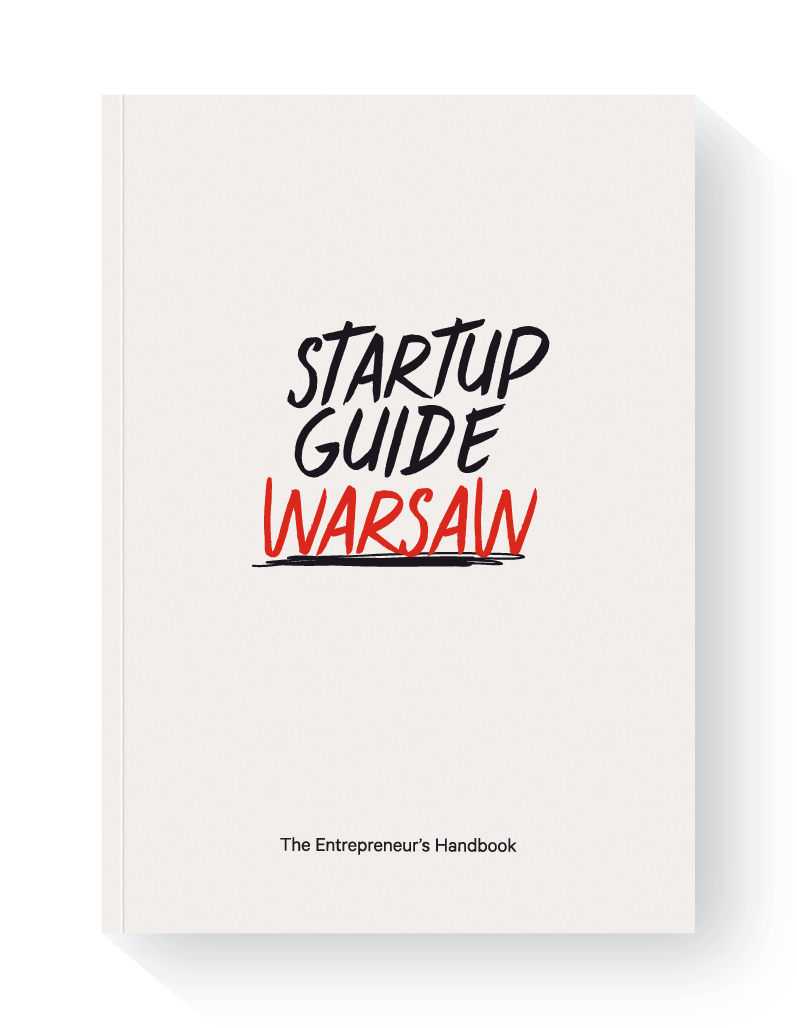10 Warsaw startups to follow in 2022
arsaw is a major business location and a leader in Central and Eastern Europe (CEE) in terms of economic development and office-market maturity. The city is already home to big-name multinationals such as Google, Microsoft and Oracle and now it has set its sights on becoming a leading startup hub.
Informed by Startup Guide Warsaw, here's a selection of some of the most innovative startups that have emerged in the Polish capital in recent years.
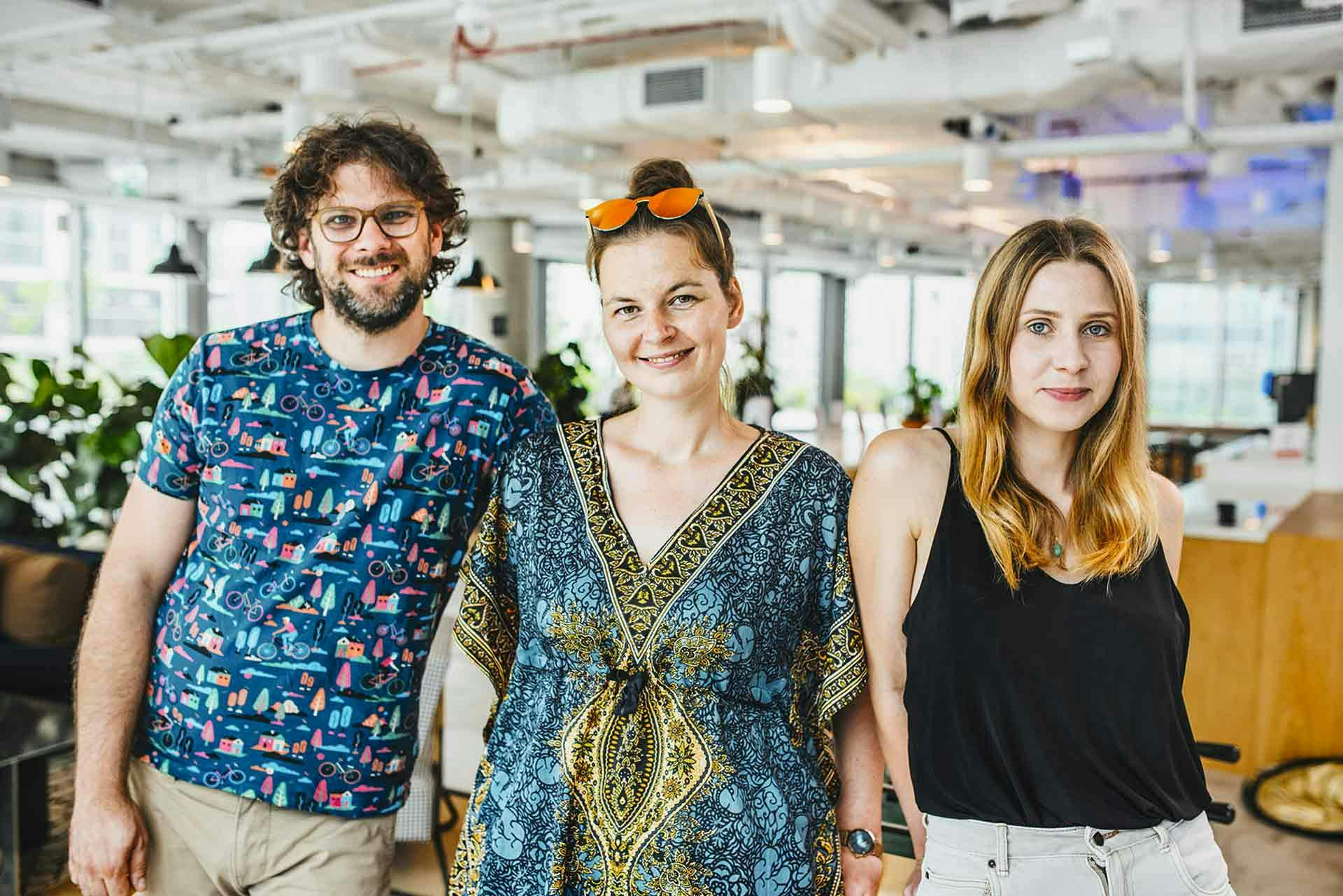
The idea for Apollo (formerly Roślinny Qurczak) came to CEO Iga Czubak when she decided to stop eating meat. Since meat is a crucial part of Polish cuisine, Iga had to find an alternative. She experimented with a new technology that allows for producing plant-based chicken made of white beans, and the result was a product that has all the amino acids found in meat as well as a very similar texture to meat. What started out as a dietary adaptation to personal needs became an idea for a potential business. Iga joined an acceleration program, which helped her turn her new plant-based meat technology into a product for the market. An environmental and ethical motivation stands behind the product, which caters to not only the needs of vegetarians and vegans but also to those who would like to reduce their meat intake.
The company began cooking for big events and then started supplying restaurants. When the pandemic started, Apollo had to adapt to the market’s needs and went online. The company managed to sell out in twenty-four hours of going online and had to produce faster to keep up with the market’s demand. The product is now making its way to major supermarket chains in Poland.
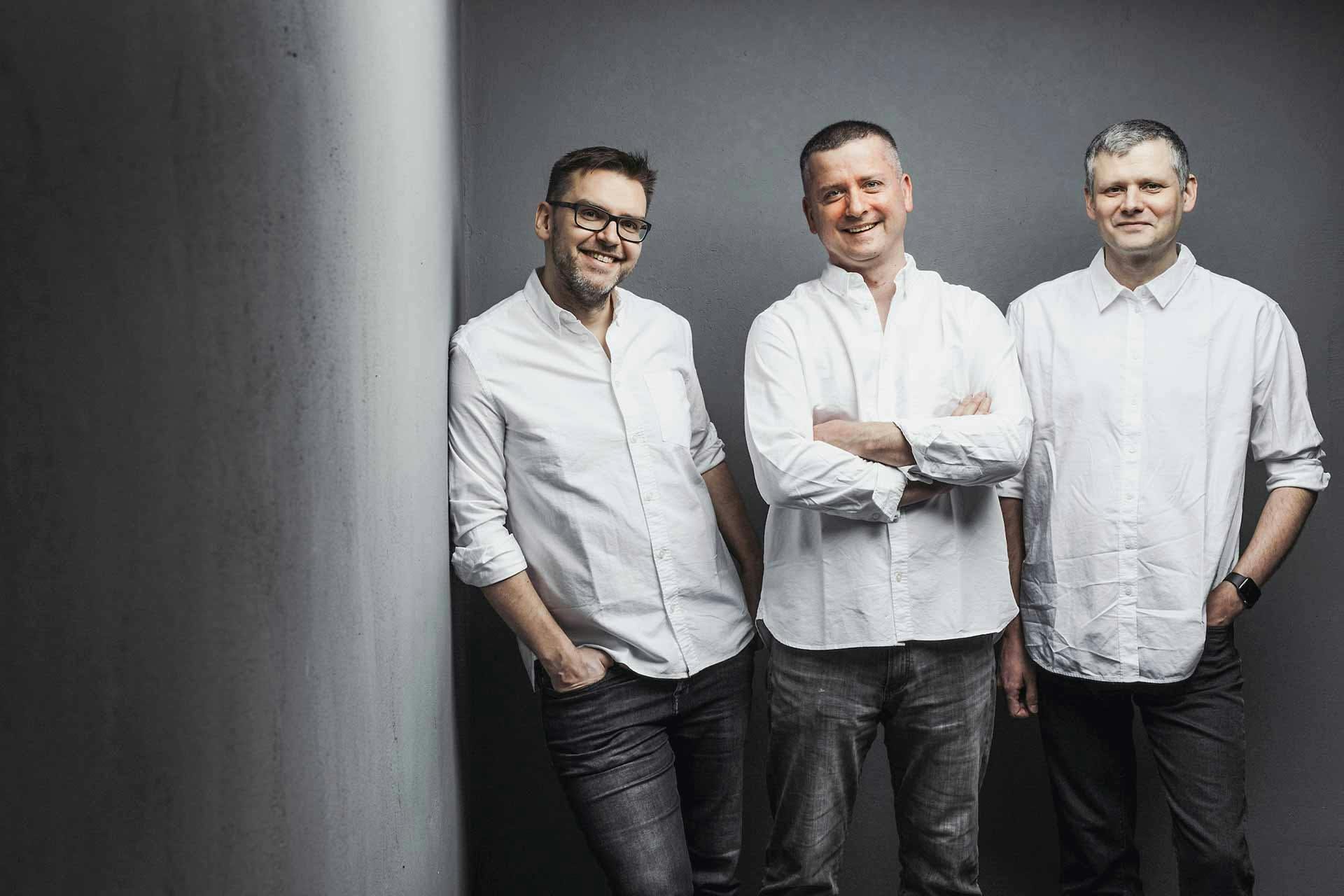
Krzysztof Klimczak, Marek Rogoziński and Jarek Sygitowicz were cofounders of a company called ZenCard, which they successfully sold to the largest central bank in Europe in 2017. While working on a new credit product for the bank, they encountered problems with the online identification verification. The whole process was manual and clunky: users had to take a photograph of their document and then a selfie, and then additional steps were often required by the verifier. There was no quick and easy way to do it. In 2020, they decided to leave the bank to explore how they could fix this.
Through their research, they discovered that the reality of building a single method of online verification was unfeasible, so they set about combining the three main ID verification methods (document scanning, government-issued digital IDs and banks as identity verifiers) into one API. In July 2020, they launched Authologic. “We wanted to make it easier and faster for people to verify their identity online,” says Jarek, “and instead of replacing the current identification methods, we decided to aggregate the methods into one API. Our ultimate aim is to build an identity layer for the internet, to simplify the process for both users and businesses. We see ourselves as Stripe for identity verification.”
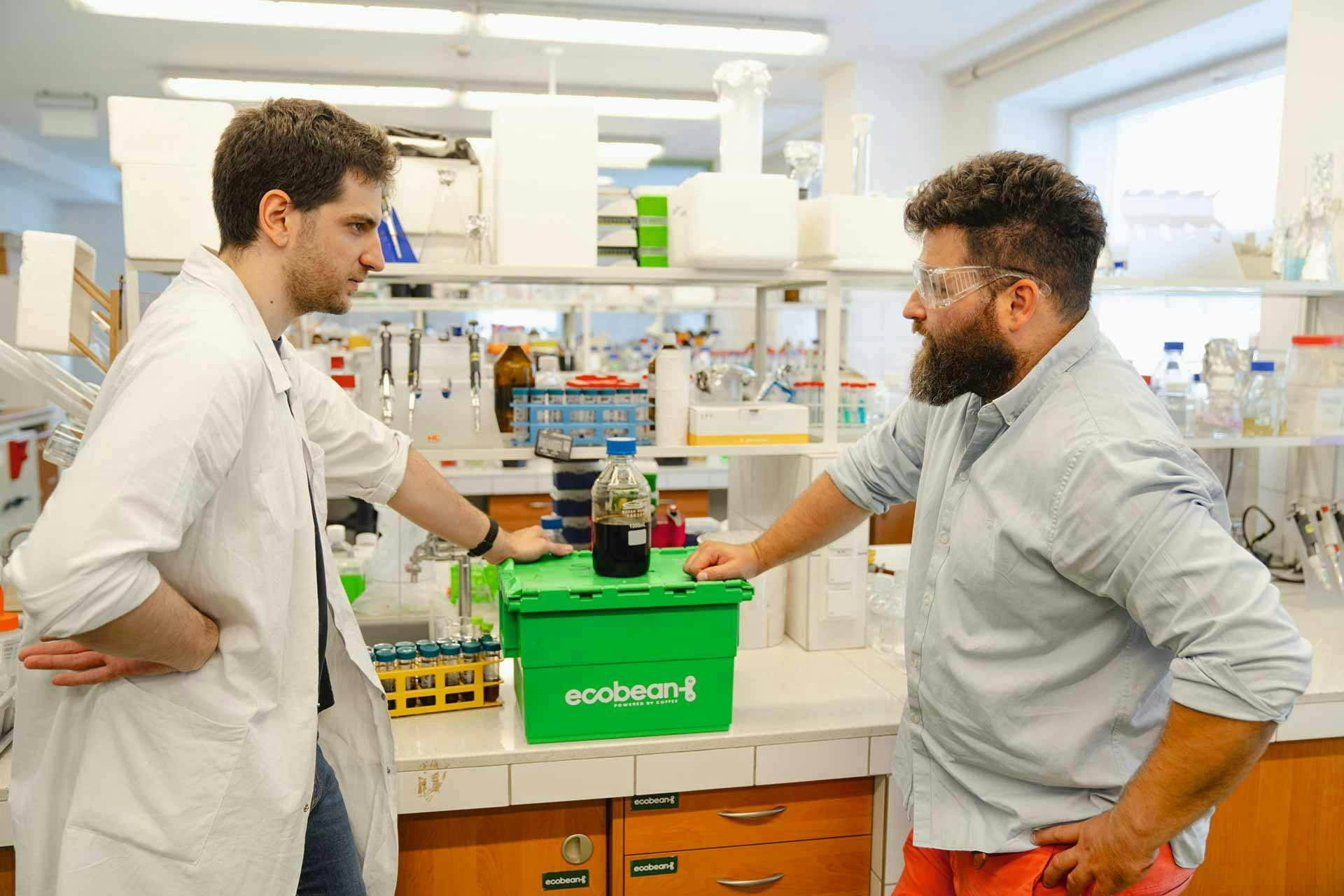
Coffee plays a major role in the lives of many worldwide. However, with extremely high demand comes an extremely large amount of waste that ultimately ends up in landfills, generating high carbon and methane emissions. The desire to reduce this waste drove cofounders Marcin Koziorowski and Kacper Kossowski to create EcoBean in 2018. “Here in Warsaw, we produce more than thirty to forty tons of coffee waste every day,” says Marcin. Kacper, who had twenty years of experience in the coffee industry, initially approached Marcin with the idea to create coffee briquettes. However, noticing that making fires was not a big trend in Poland due to several environmental factors, they “started thinking in different ways,” says Marcin.
EcoBean repurposes coffee waste collected from cafes, offices and gas stations to create raw materials such as coffee oil, coffee lignin, lactic acid and animal feed additives. These materials are used to produce a range of bioproducts such as straws, flowerpots and utensils, as well as coffee briquettes. Since its founding, the startup has expanded its network to include more partners to provide the needed coffee waste, which translates into more bioproducts. EcoBean’s current project is to build the world’s first biorefinery for coffee-waste valorization. The first three biorefineries will operate in Warsaw, Lisbon and Berlin with plans to expand in the future.

In 2018, Adam Janczewski went to a routine optometrist appointment where, thanks to cancellations, his doctor had more time to spend with him and caught a serious genetic condition before it could do irreparable damage. While recovering, Adam realized he could build a new kind of clinic, where technology could help turn his experience into the basic standard of care. After two years of research, he founded Jutro Medical, which combines telemedicine and a proprietary technology platform with physical public clinics. Patient intake is done over the phone or online, and the software provides clinic staff a clear “dashboard” overview of patient information, giving doctors more time to spend on preventative care.
As CEO, Adam faced a considerable challenge in opening public clinics and finding early investors. In Poland’s government-administered health service, the clinics needed approval, and profits depend solely on the number of patients. “When talking with investors, I was simply honest: we have a huge risk in national health insurance, but we don’t have a lot of risks in patient acquisition or technology,” says Adam. With an initial investor, Jutro Medical launched in January 2020. By July, the company had received a contract from the national health service. Although its planned clinic processes were disrupted by the pandemic, the team adapted to the challenge, growing from fourteen to eighty employees within a year, with monthly patient growth over 20 percent and 96 percent of consultations rated four out of five or higher.

Maria Parysz and Paweł Jankiewicz, the founders of LogicAI, had previously worked in different tech companies in Warsaw, but they realized that the field of technology learning and AI was not growing fast enough in their home country of Poland. “Twenty years ago, nobody in Warsaw even knew what a data scientist was,” says Maria. The two decided to go independent and start their own company. Now LogicAI is one of the top contenders in the field of data development. It works with companies such as Rolls Royce and LVMH to develop better data-gathering software that not only helps their customers’ experience but also uses privacy-driven ethics to guarantee customer privacy.
More recently, LogicAI has started expanding into data security, working with the Dubai Police to create better cybersecurity strategies. “People are the future,” says Maria. “We want to continue to expand our community of professionals and invest in them.” LogicAI already has one of the most significant data-scientist communities in the world, with around seven million international participants. As the company looks to the future, its horizons are expanding westward; it is currently in the process of opening offices in Canada and its next big step is the North American market. The founders hope this move will expand their outreach and the image of Warsaw as a new nest for tech talent.
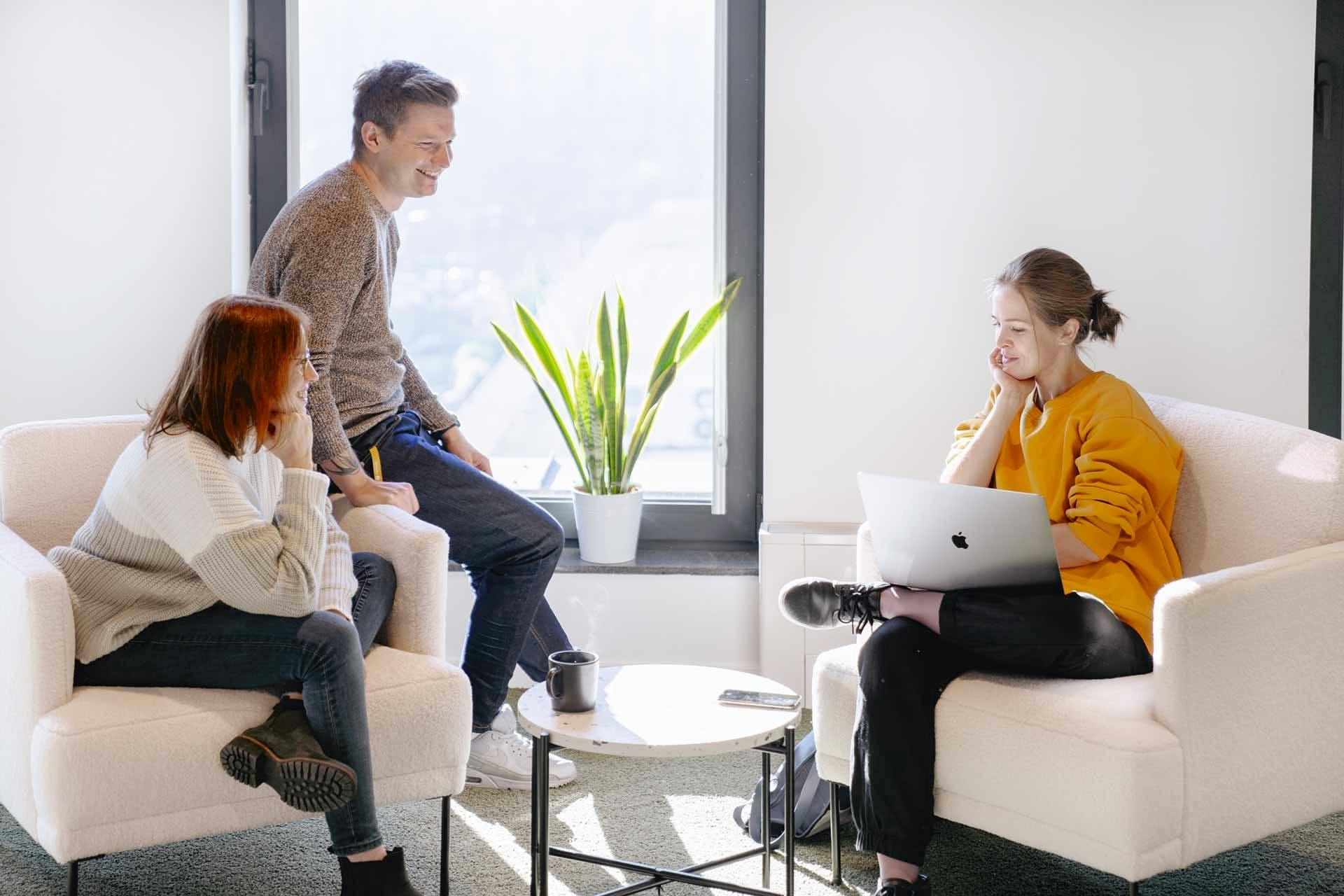
Packhelp helps brands to be better at packaging. Its intuitive web app allows customers to design, customize and order their own packaging in just a few clicks. Its proprietary software speeds up packaging development and automates mundane tasks, allowing companies to redirect their attention to other parts of their business that might need more attention. Packhelp’s aim is to become the leading custom-packaging platform in the world by empowering brands to be better and more creative with their packaging ideas and services, and its top priority in achieving this is to help brands transition to custom-branded packaging solutions that are 100% sustainable.
Its vast network of suppliers enables it to be a single partner for all types of customer packaging needs, producing products from envelopes and bags to food packaging and typographic boxes. Since its founding in 2017, the company has optimized the company to work on larger, more complex packaging projects and has enabled over fifty thousand customers in more than thirty countries with its design-led platform. Both global brands as well as direct-to-consumer companies rely on its diverse services to reach customers daily. The company has been listed #1 in Deloitte’s Fast 50 Central Europe 2020 ranking and as the most prominent startup in Europe by Business Insider.
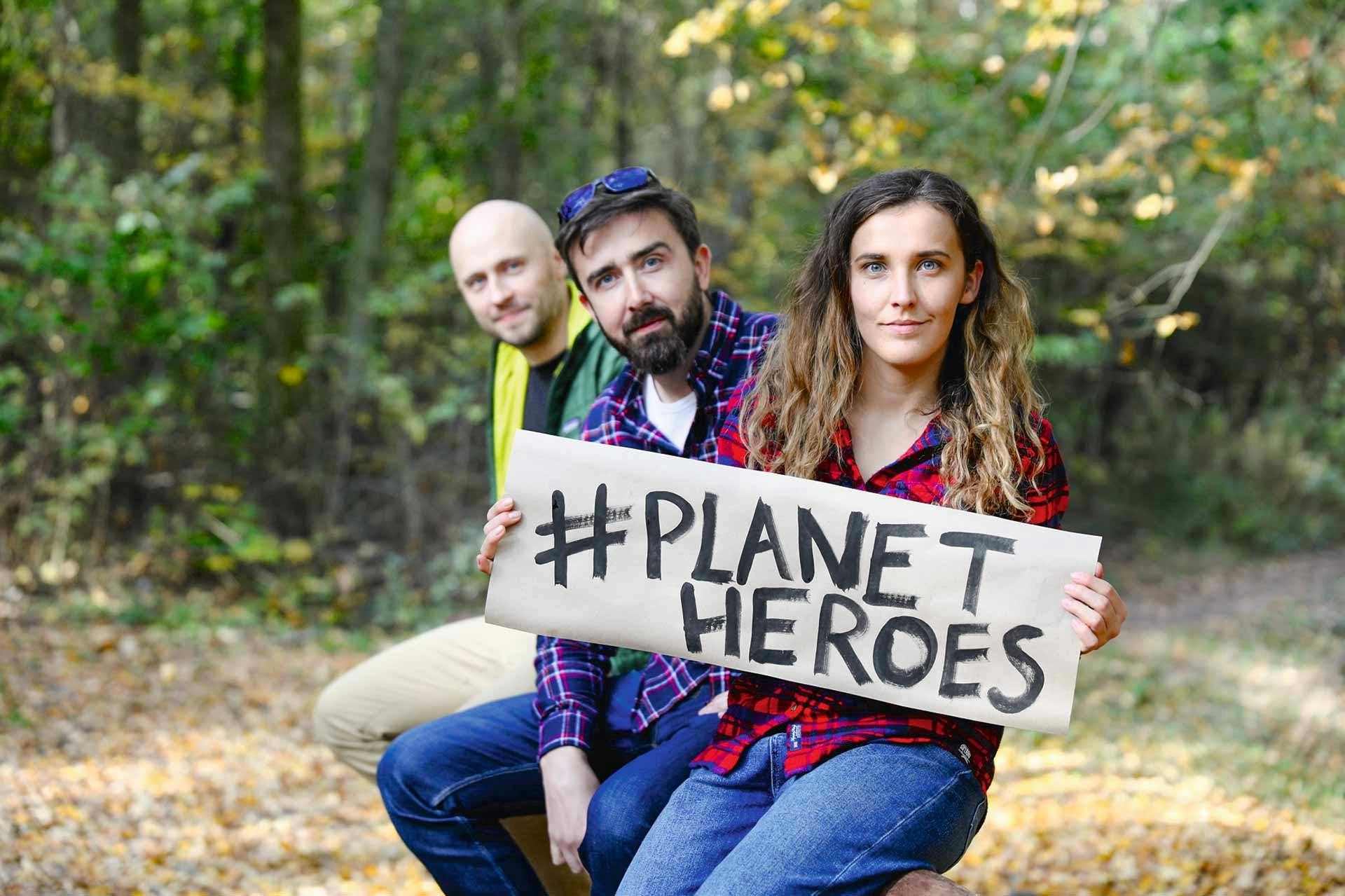
Planet Heroes, an eco-crowdfunding platform, was born out of the wish for a community dedicated to cleaning up the natural environment. As Planet Heroes, users can either help clean up an area (such as a forest or beach) or support others doing this work through donations. Users share the before and after pictures of the area and get cash in return. “There is always some trash wherever you go,” says Karolina Gurgul, PR and communications manager at Planet Heroes, “so it helps when people can see results and receive financial motivation to clean it up.” The assured five euros per every bag of collected trash guarantees users a just reward for their work. Karolina highlights a recent Zanzibar clean-up project whose proceeds help schools to buy new computers to further digital education in the Tanzanian capital. “It’s a wonderful project that’s showing a lot of results.”
Planet Heroes is a UN partner and the official host of World Clean Up Day in Poland while also launching its official app later this year. “We had this original goal of collecting one million liters of trash when we started,” says Karolina, “but what we ultimately want is to create a passion for cleaning up the planet. We want our heroes to share and be proud of their work.”
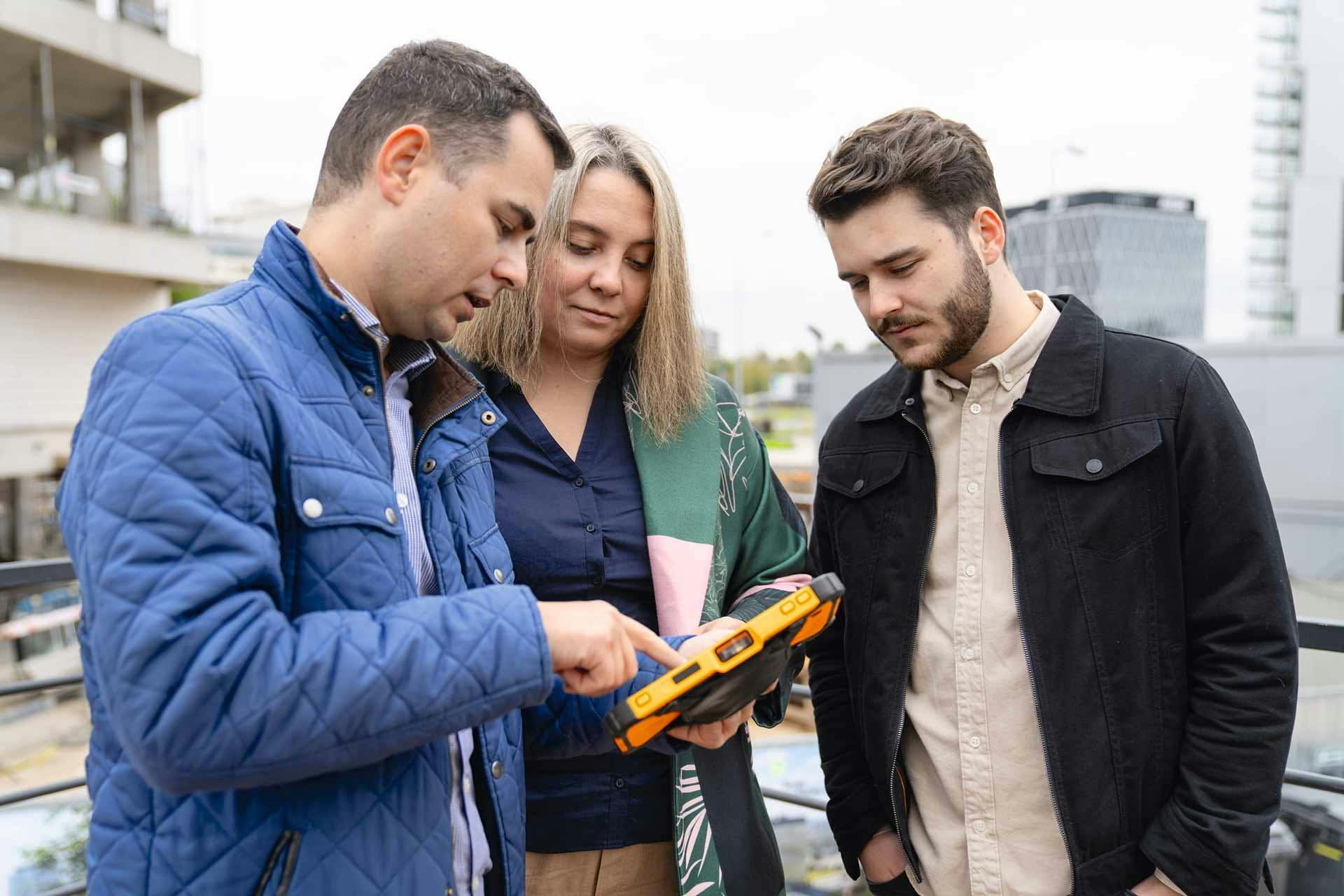
ProperGate was founded in 2017 by a group of real estate, construction and technology professionals who observed how hefty the needs of one of their construction sites was. They needed a way to automate the processes and responsibilities at construction sites. The three founders and two early business angel investors held a shared vision of improving the way construction companies plan and implement logistics via digital technology. The company launched in January 2018, and within two years it became a globally awarded solution and was selected as a top contech (construction technology) company in rankings compiled by BuiltWorlds Chicago, REiN, Builtworld Germany, PwC, Cemex Ventures and BCG. It is also considered a rising star of ESG (environmental, social and corporate governance) by PwC, Business Insider and Ringier Axel Springer.
By giving site managers an interactive tool that helps them to save time on repeatable, time-consuming tasks, it allows them to focus on more important work and project decisions while increasing efficiency, improving safety and reducing wastage. The founders consider Warsaw a perfect environment for the company to thrive in, not only because it is a vibrant, modern metropolis with fast growing numbers of high-rise buildings being planned but also because the city acts as a good starting point for the localization of new investments.
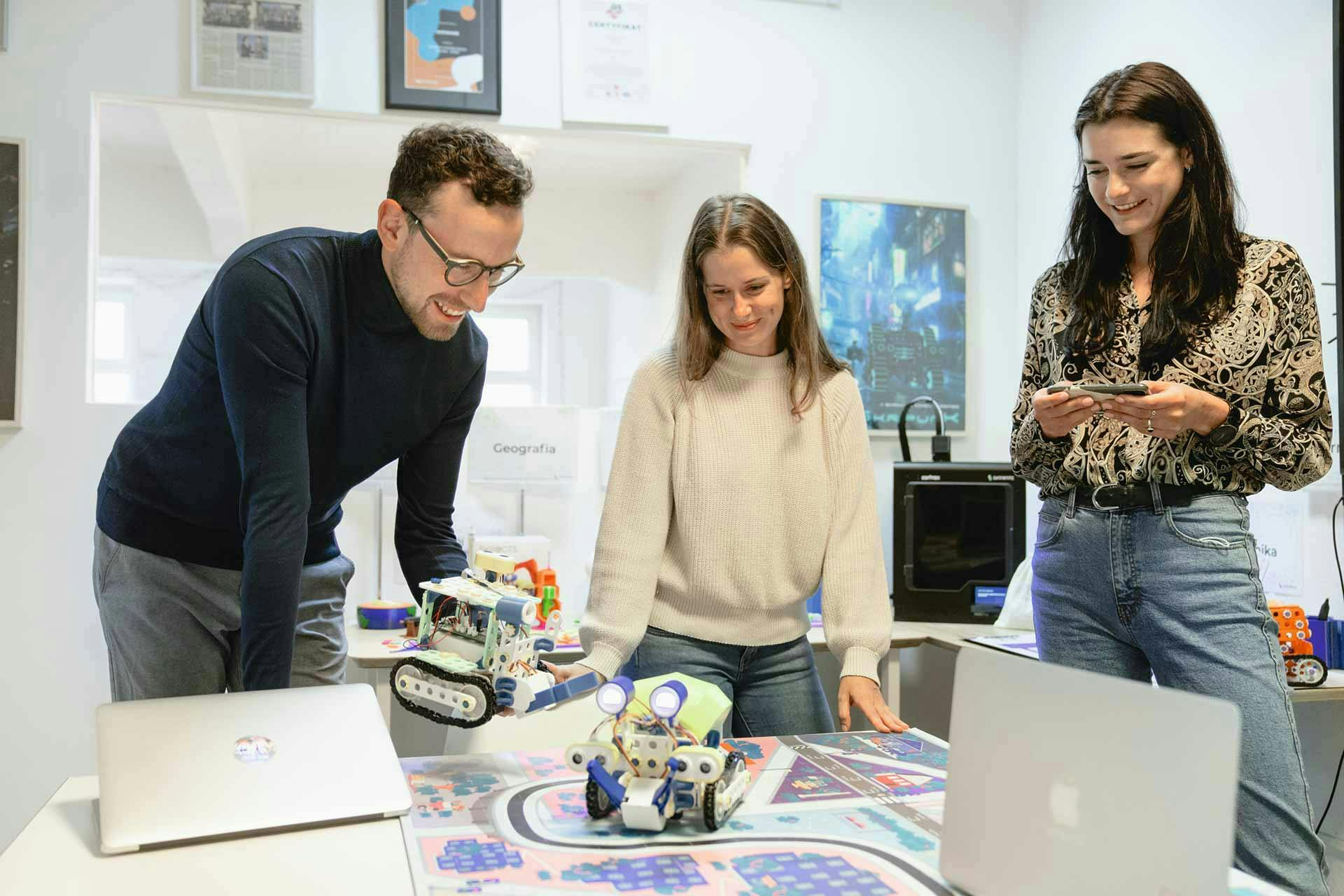
Skriware is the bridge between science and creativity. Founded in 2015 by passionate individuals focused on robotics and 3D printing, the company initially set out to produce the first user-friendly 3D printer and later to popularize the technology. However, the founders soon identified a gap in the market: educators could use these technologies in their classrooms. Skriware created a fully integrated educational laboratory, the SkriLab, which uses modern tools, materials and teaching aids in accordance with the core curriculum of most school subjects. It has now become a comprehensive educational ecosystem covering the fields of 3D modeling and printing, robotics and engineering for schools that want to respond to the challenges of the modern world.
Skriware focuses on becoming a thriving system not only for students but also for teachers, enabling them to thrive at their work, pass on their knowledge more effectively and improve their own abilities, all while interacting in one, unique, integrated ecosystem. Since pivoting to becoming an educational ecosystem of products that focuses on developing practical skills and a creative approach to problem-solving, onboarding has become easier, while also opening a door to the regular use of technology in schools. The startup also offers tech support to teachers, helping them in the implementation and methodological oversight.
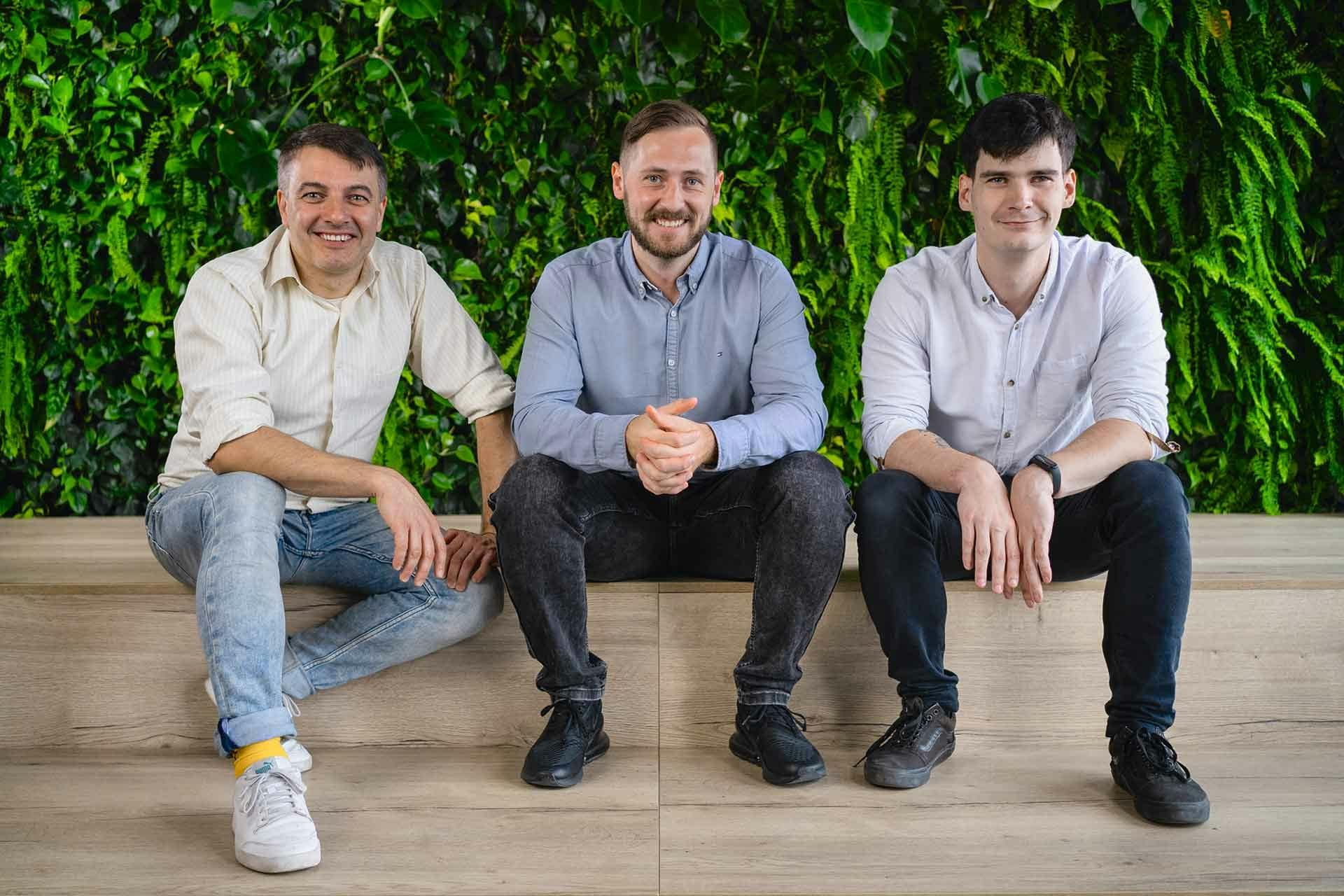
Vue Storefront provides developers with the needed technical solutions to keep up with the fast-growing ecommerce industry. The company is now the fastest-growing open-source project on GitHub. The idea for Vue Storefront emerged when the founders tried to solve a problem. In 2017, Patrick Friday and his colleagues were working for Divante, a global ecommerce-technology company, when they noticed that more and more users were migrating from desktop to mobile phones. Optimizing the software used back then did not achieve the needed results, because it meant higher costs for only slightly better performance. However, they realized that using Vue.js, a JavaScript library for building web interfaces, allowed for a remarkably improved experience for mobile users. They saw an opportunity for a new business using Vue.js for storefronts, which is where its name came from.
Headless ecommerce, which separates the front end of the store from the back end to improve flexibility, was relatively new when the company started out. The cofounders’ biggest challenge was to convince investors of their idea. However, with the change of the demands of the market as many users migrated to mobile, investors began to develop an interest in the company to the point that Vue Storefront had one of the biggest Series A round in the history of Polish startups.
Inspired to start your own business in Warsaw? Want to learn more about the local ecosystem? Order your copy of Startup Guide Warsaw now.
Written by Sarah Nagaty, Lucy Beckley, Hava Salsi, Rachel Velbny, Giovanna Centeno, Diana Figueroa
Repackaged by Anastasia Ilcov

